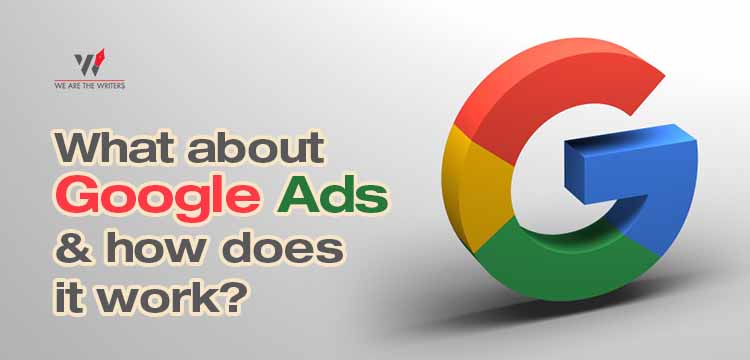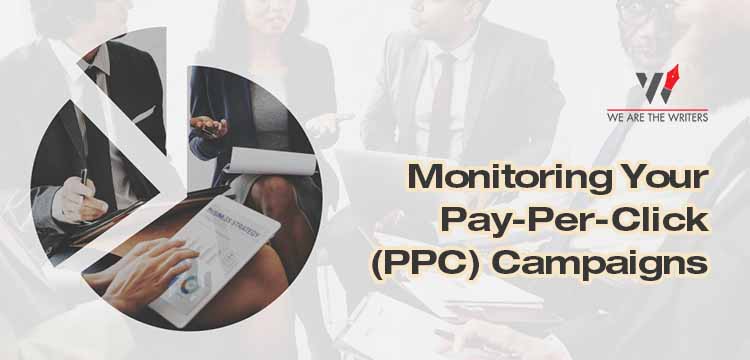You’ve arrived here to the perfect spot if you’ve encountered something regarding PPC marketing and still wish to understand further, or unless you currently understand you would like to utilize PPC to promote your company and are not really certain how to begin.
We must initially describe PPC and gain a rudimentary knowledge of how PPC marketing operates. Let’s get started!
What is PPC?
Pay-per-click (PPC) is an online advertisement approach wherein businesses are charged a price every minute one of their adverts is viewed. It’s basically a means of purchasing visitors to your website instead of trying to “win” them naturally.
Web search advertisements are one of the very prevalent types of PPC. Whenever somebody looks for a keyword relating to your company portfolio, it enables marketers to pay for advertising strategy in a search engine’s affiliate connections. If you spend just on the keyword “PPC program,” for instance, your advertisement could appear at the absolute front of the Search engine outcomes.
You must give a tiny amount to the browser each moment your advertisement is visited, resulting in traffic to your homepage. Once PPC is functioning right, the charge is insignificant since the encounter is considerably greater than whatever amount you spend. In other terms, if we spend $3 on a visit that leads to a $300 transaction, we’ve profited handsomely.
There’s a multitude that comes towards creating a successful PPC marketing strategy:
From keyword marketing and selection to structuring these keywords as well projects and PPC advertising to creating conversion-optimized PPC sales funnels, we’ve got you covered. Marketers who could construct meaningful, smartly focused pay-per-click advertisements are rewarded by browsers, who charge customers cheaper for click-through rates. Google makes businesses cheaper each click if your advertising and home webpages are helpful and gratifying to visitors, resulting in better revenues for any company. If you wish to begin utilizing PPC, you must first understand ways to accomplish it correctly.
Know how to keyword research: ARTS OF KEYWORD RESEARCH ? A BEGINNER’S SECRET!
What about Google Ads and how does it work?

Google Ads is perhaps the biggest widely used pay-per-click (PPC) marketing platform on the planet. Organizations can use the Advertising network to produce advertisements that display on Major search engines like google as well as other relevant domains.
Customers bet upon keywords then spend for every visit on sponsored adverts in Google Ads, something that works on a pay-per-click premise. When a visitor performs a research, Google examines its ads sponsors and chooses a handful winners to display in the premium advertising part of the search engine results tab. The “victors” are determined by a number of criteria, such as the value and applicability of one‘s keywords and advertising strategies, and also the volume of overall keyword bidding.
Advertising Ranking is a statistic generated by combining two important elements – CPC Bid (the maximum price a marketer is ready to invest) and Star Rating – to determine who deserves to feature on the website (a score that considers your number of clicks, appropriateness, and web design element into consideration). This method permits thriving firms to reach out to prospective clients at a budget that they can bear. Actually, it’s a price battle.
Check our Blog for SEO Checklist for Ranking in Google SERP: SEO CHECKLIST TO RANK NO.1 in GOOGLE’S SERP
PPC marketing using Google Adwords is particularly effective. Google, as the most popular web browser, receives a large number of visits and so delivers one of the best exposures and views for your ads. The frequency with which any PPC ads emerge is determined by the keywords as well as search patterns you choose. Although many aspects influence the performance of any PPC marketing strategy, a business can accomplish a great deal by concentrating on:
- Using appropriate keywords:
Creating appropriate PPC keyword categories, keyword clusters, and advertisements.
- The excellence of the homepage:
Designing optimized web pages for individual search inquiries with convincing, appropriate information and a strong CTA.
- Content Value:
Google assigns a value to all keywords, webpages, and Ppc marketing based on their content and relevancy. Businesses with higher Excellence Ratings receive greater ad impressions for less money.
- Innovative:
If you’re promoting over the visual platform, the software can help you produce custom-made advertisements which will entice people to interact.
Keyword Selection for Pay per click:

Keyword selection for Pay per click might be time killing, though it’s critical. Because keywords are indeed the bedrock of your entire PPC strategy, the most successful Google Ads advertisers are often extending and optimizing their keyword inventory. If you simply undertake keyword analysis occasionally, while creating your initial strategy, you’re likely overlooking dozens of multitudes of useful, lengthy, relatively strong, and extremely important keywords that might drive visitors to your website.
The following is an example of a good PPC keyword catalogue:
Significance
Obviously, you would not wish to spend on Website traffic which has zero to deal with your company. You would like to select keywords which will boost your PPC number of clicks, price each click effectiveness, and profitability. To put it another way, the keywords you choose must be highly correlated to the items and offerings you offer.
Extensive
Perhaps not the highly prominent and often sought keywords in your industry, as well as the long tail of searching, must be included in your targeted keywords. Lengthy keywords are much fewer prevalent and highly precise, yet they constitute the bulk of web traffic. They’re also less costly because they’re less demanding.
Broad
PPC is an incremental method. You enjoy fine-tuning and increasing your business, as well as cultivating an environment in which your keyword collection evolves and adapts.
Look out for relevant keywords if you’re looking for heavy, industry-related keywords to be used in any PPC ads.
Check our Blog for Best Keyword Research Tool: BEST KEYWORD RESEARCH TOOLS
Monitoring Your Pay-Per-Click (PPC) Campaigns

After you’ve established your fresh programs, you’ll have to monitor these on a frequent basis to ensure that they remain productive. In reality, another of the biggest indicators of business performance is consistent account engagement. One must be reviewing the profile’s progress on a daily basis and implementing the required changes to optimize your advertisements:
PPC Keywords should be added. Incorporate keywords which are pertinent to your company into your PPC advertising to broaden their impact.
Negative keywords should be included. Negative keywords for quasi phrases can help you enhance advertising impact and save money.
Divide up your ad sets.
Dividing up your ad sets into shorter, highly specific ad groupings can assist you to produce better-tailored advertising content and landing pages, that will also increase your number of clicks and Star Rating.
Examine High-Cost PPC Keywords.
Examine your most costly and ineffective keywords then, if required, turn these down.
Landing Pages could be improved.
To increase lead generation, link the contents and CTAs of the web pages with specific relevant keywords. Do not send most of your readers to a certain page.
Read our blog about Popular Lead Generation Software: 10 Popular Lead Generation Software
Conclusion
PPC marketing is perfect for local companies because you could choose what amount you want to pay on every keyword, allowing you to control how often you invest whenever your advertisements appear. In short, this guarantees that the amount you invest in advertisements is really not squandered because you’ll be capable of attracting more customers who are intrigued by your business.
Reference taken from Semrush: What Is PPC (Pay Per Click)? An Introduction to PPC Marketing

 WhatsApp
WhatsApp